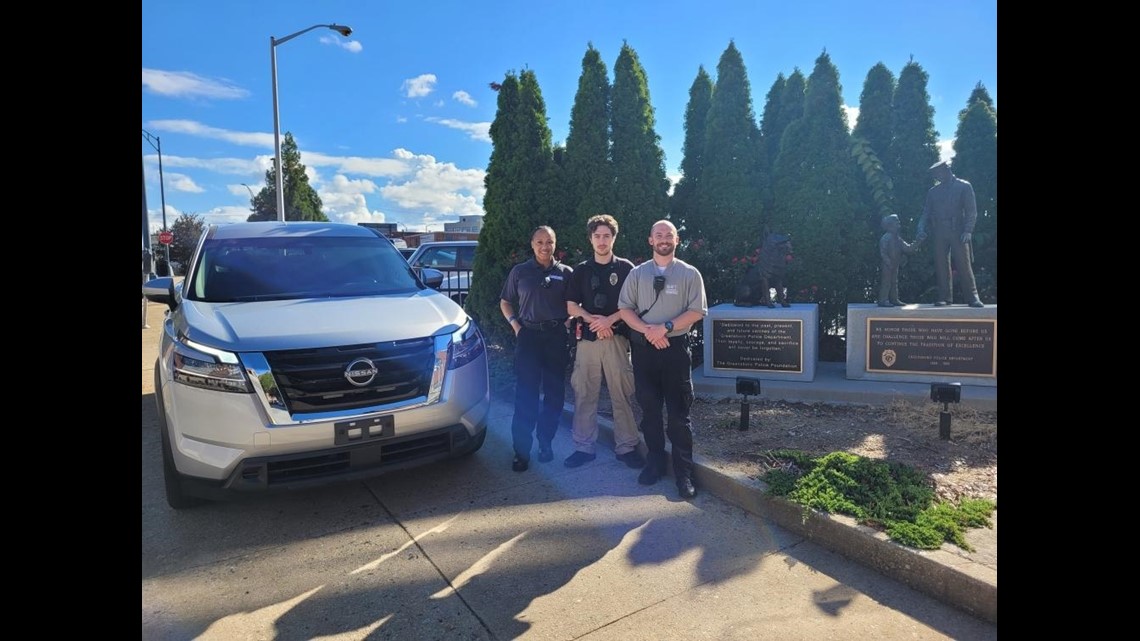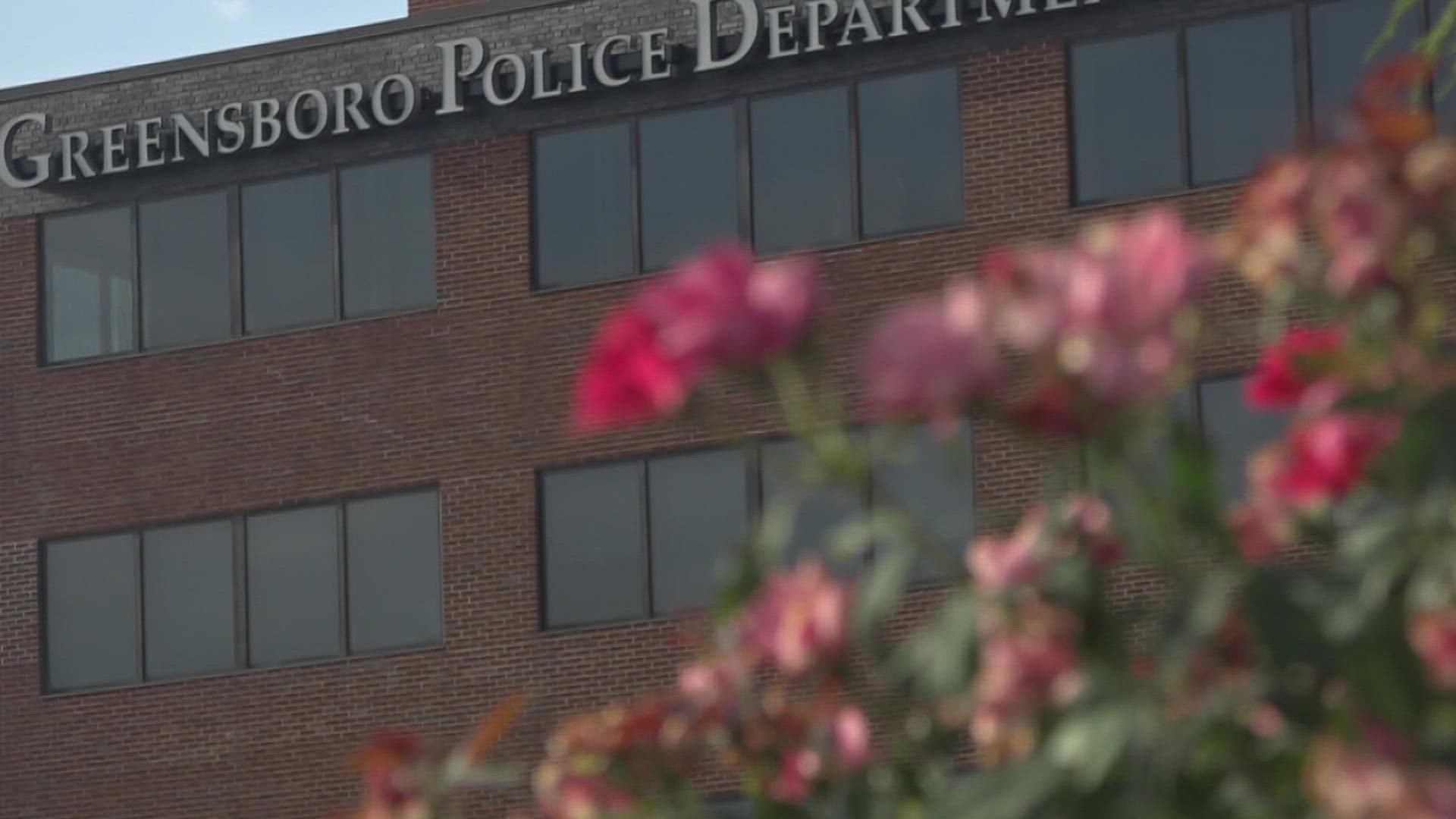GREENSBORO, N.C. — Greensboro Police took another step Monday to adjust how it responds to calls.
The Behavioral Response Team in Greensboro received 330,000 dollars from the North Carolina Legislature through the Support Team Assisted Response (STAR) grant.
"The Greensboro police department and the city of Greensboro partnered together to create our behavioral health response team," said Greensboro Assistant Police Chief, Ranae Sigmon. "It's a co-responder model where we have many full-time clinicians, that partner with a number of our officers, and they respond out on mental health calls for service and that program has been very successful."
This additional funding helps the team respond to crisis incidents. The team is adding a paramedic to the clinician and officer team, that goes out together to answer calls for service.
"Every day, Monday through Friday, we have a paramedic and we have a police officer and we have a mental health clinician that are able to drive together ride together in the same vehicle and respond to mental health calls for service," Sigmon said.
They provide direction during initial patrol responses to people that are believed to be in a crisis or mentally ill. The purpose is to deal with the immediate crisis properly and then also follow up and coordinate other services for that individual.
Sigmon, said one of the key takeaways from this program is it helps reduce repeat calls for service and allows a person to get the help that they need. She said it helps lower the risk of a crisis situation and the need for a police response.
Sigmon said it's opening the door to have more options when responding.
"Maybe law enforcement doesn't need to have a lead role on these calls and we have our clinicians and we have our paramedic with us, and so once we recognize the scene is safe, there's the flexibility, where law enforcement will kind of back out of the scene a little bit and allow folks that are experts in those areas, to really help minister and help work with the clients to get them linked up to the resources that they need," said Sigmon.
Sigmon also said there's STAR programs throughout the country. However, in the state of North Carolina, she said this is the only place where you have EMS, clinicians and officers in the same car.


She said In other cities, you may have a them responding separately, but to have those three entities riding in a vehicle together, this is the only place in the state where that's taking place.
"There's definitely been interest from other jurisdictions, we've had other groups come and visit us, call, ask questions, ask for policies to be sent, so they can hopefully learn from some of the things we've done over the last year and a half," said Sigmon.
Billie Silvera, a Paramedic at Guilford County EMS, is joining the team. She said she shares a strong passion for mental health.
"I started back in New York, I worked with mental illness patients and also developmental disabilities," said Silvera. "When I first moved to North Carolina, I did that also for about maybe six years."
Silvera said this position is important to her.
Corporal Jeremy Johnson, who's apart of the team, said it also helps them with de-escalation.
"We're able to take that extra few minutes to get that de-escalation there to where we're not having to arrest the individual or we're not having to have it escalate to any type of force because they are in the middle of a crisis and these things are handled so much better by by being able to talk and take the time," said Johnson. "We're consistently keeping up with them so that we can help with the repeat callers so that we can help get them stabilized so that we're the ones that are going to be the initial as opposed to patrol being called out every single time when this individual is having an issue."
"Maybe there aren't additional calls for service to for an ambulance. Maybe there's fewer trips to an ER. So there's so many possibilities and sometimes you don't know the good that you do. It's hard to actually account for that. But in the grand scheme of things, it affords us an opportunity to better serve our public," said Sigmon.
The funding will also support a partnership with the city, GPD, and UNCG. Together, the groups will do an evaluation to determine how effective the response team is.
It will look at things like the number of trips taken to the emergency rooms and any reduction in repeat calls for service.
"We were able to partner with UNCG to help us evaluate our effectiveness, because it would be inappropriate to say, well, we need more police officers or we need more clinicians or we need more paramedics to be part of this team without being able to really determine how effective have we been?" Sigmon said. "Have we been able to intervene and break the cycles, have we been able to prevent future EMS calls for service or trips to the emergency room, so the great thing about that grant is it's allowed us to partner with UNCG to help us evaluate our effectiveness and then we can be more educated to figure out what's next step. What do we need to do expanding the program? Potentially, yes, but what's the best way to expand it? How do we do it so that it meets the needs of our community?"
The Behavioral Response Team started responding to calls for service in January 2021. So far, nearly 4000 call have been answered since the start of the program.
There are 9 police officers, 8 clinicians and currently 1 paramedic. They are working to determine if they need to add more along the way.
"I think at this point, we have much better data on how many calls we're taking, what are our major issues are that we might respond to, what that looks like, and just even learning about community resources and who our partners are in navigating what services people are going to access," said Erin Williams, Lead Mental Health Clinician.

